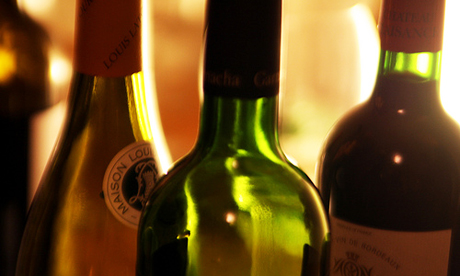Hitting the bottle: Hackney’s new refill scheme for wine lovers
Gone are the days when most Brits regularly washed out glass bottles and left them on the doorstep for the milkman to collect. Gone, too, are the bring-back schemes that – where I grew up, at least – allowed kids to supplement their pocket money by returning empty soft-drinks bottles to the local shop to be cleaned and used again.
If recent developments in east London are anything to go by, however, the environmentally friendly and oddly reassuring refillable glass bottle is not dead yet. Over the past couple of months, residents of one corner of Dalston have become accustomed to the clink-clink sound of people walking down the street clutching empty bottles ready to be refilled. But this time the liquid is question isn’t milk or lemonade, but something altogether more exciting: wine.
The refill scheme, launched in the new branch of Borough Wines, has proved a runaway success, accounting for around half of the wine sold in the shop – far more than the owners expected when they opened their doors earlier this year.
It’s not hard to see why. The scheme offers red, white and rosé wines that would sell in a conventional single-use 75cl bottle for around £10. But if you bring your own bottle and fill it up from the barrels in the corner of the shop you get a whole litre for £6 – a saving of more than 50%.
Financially, then, it’s a no brainer, but what about the environmental benefits? How much carbon can a scheme like this save? Not much in absolute terms, perhaps, but relative to other ways of purchasing wine the difference is substantial.
In How Bad Are Bananas?, the book featured in the Guardian’s carbon footprint series, Mike Berners-Lee estimates the footprint of a typical bottle of wine at around 1kg. Remarkably, manufacturing the bottle accounts for a third of that total, and transport and storage – which are made much less efficient by the weight, bulk and shape of the glass bottles – account for almost another third.
This explains why, according to Berners-Lee’s study, wine purchased in a box has less than half the footprint of wine bought in a bottle. But while boxes are great in principle in terms of cost and carbon, the wine available in them at supermarkets isn’t usually very good. As I discovered when getting married, to get the decent stuff you need to go to a specialist supplier and buy huge 10-litre boxes – fine for weddings, but impractical if you just want a few glasses a week with dinner.
The new refill scheme solves that problem. The shop buys high-quality wine in large boxes, decants it into barrels (which are, disappointingly, only for show) and then sells it at bargain prices in handsome air-tight bottles that look just as nice on the table as normal wine bottles.
It’s such a step forward in terms of price, let alone the environment, that I’m surprised wine refill schemes aren’t more common. They’ve always been popular in France, apparently, but as far as I can gather – and do correct me in the comments below if I’m wrong – the only comparable scheme in the UK is the one at the same company’s sister store in Borough market.
That one has never really taken off in a huge way, store owner Muriel Chatel told me, because the market is more of a foodie destination than a place for locals. But the scheme in the new shop on Hackney’s Wilton Way, in a much more residential part of town, is so successful that the local cornershop owner is now toying with the idea of getting in on the action with his own barrel.
All of which is great; a tiny but pleasing demonstration that sometimes there are ways to slash the carbon pollution from manufacturing and freight without waiting in vain for everyone to suddenly consume less. Indeed, if there’s a downside to the scheme, it’s the fact that always having an “open” bottle of nice but inexpensive wine tempts you to increase rather than decrease your wine consumption. The rebound effect never tasted so good.
guardian.co.uk © Guardian News & Media Limited 2010
Published via the Guardian News Feed plugin for WordPress.

